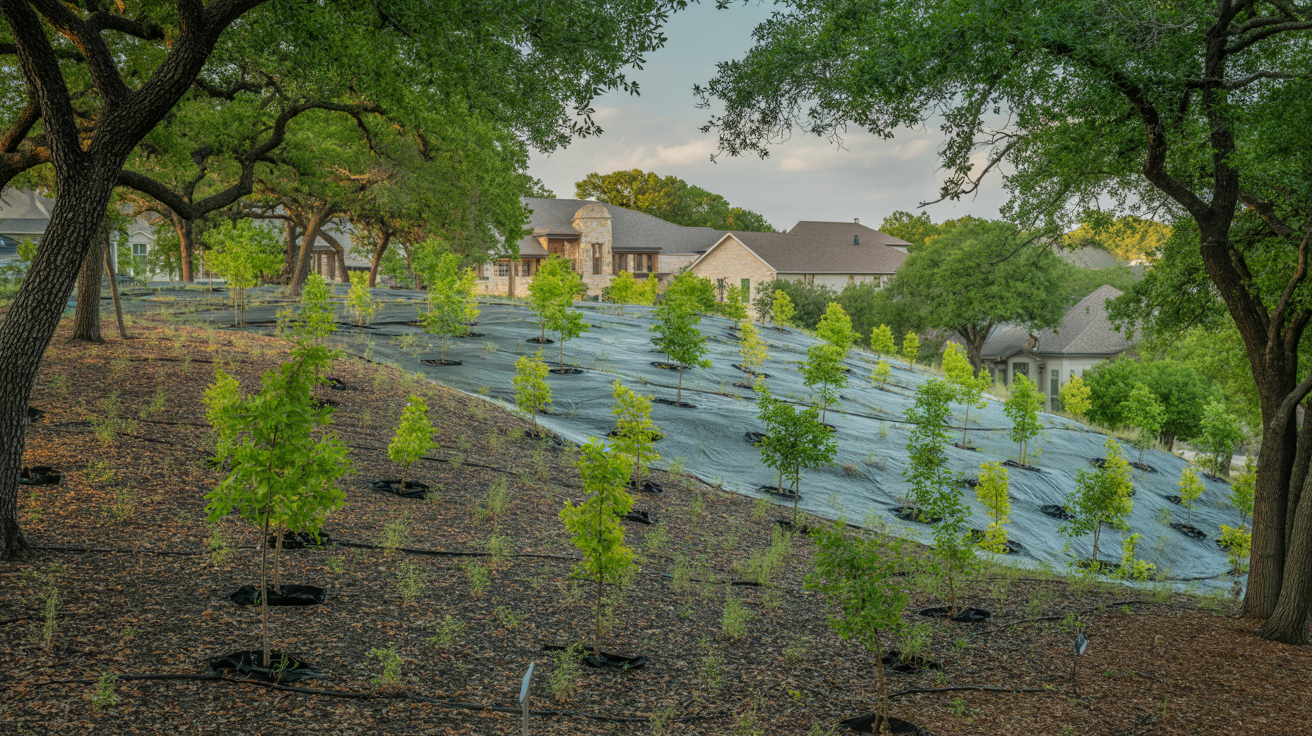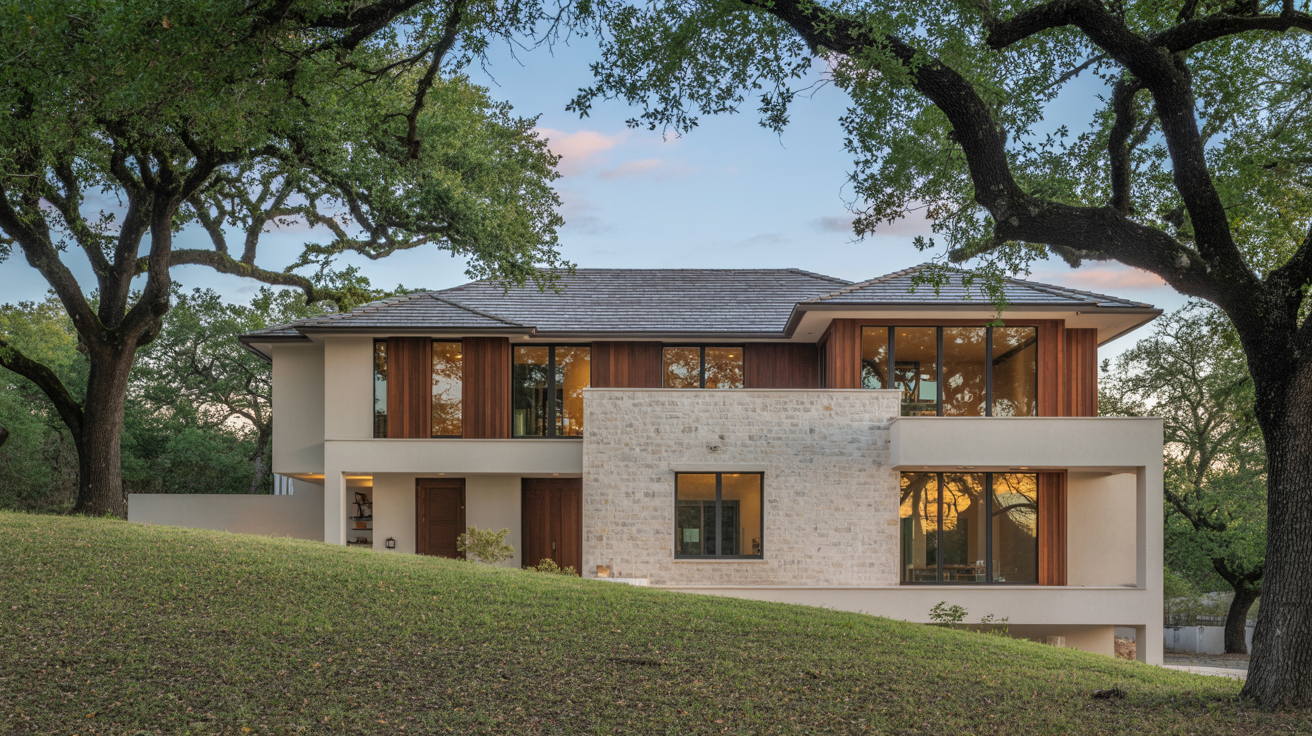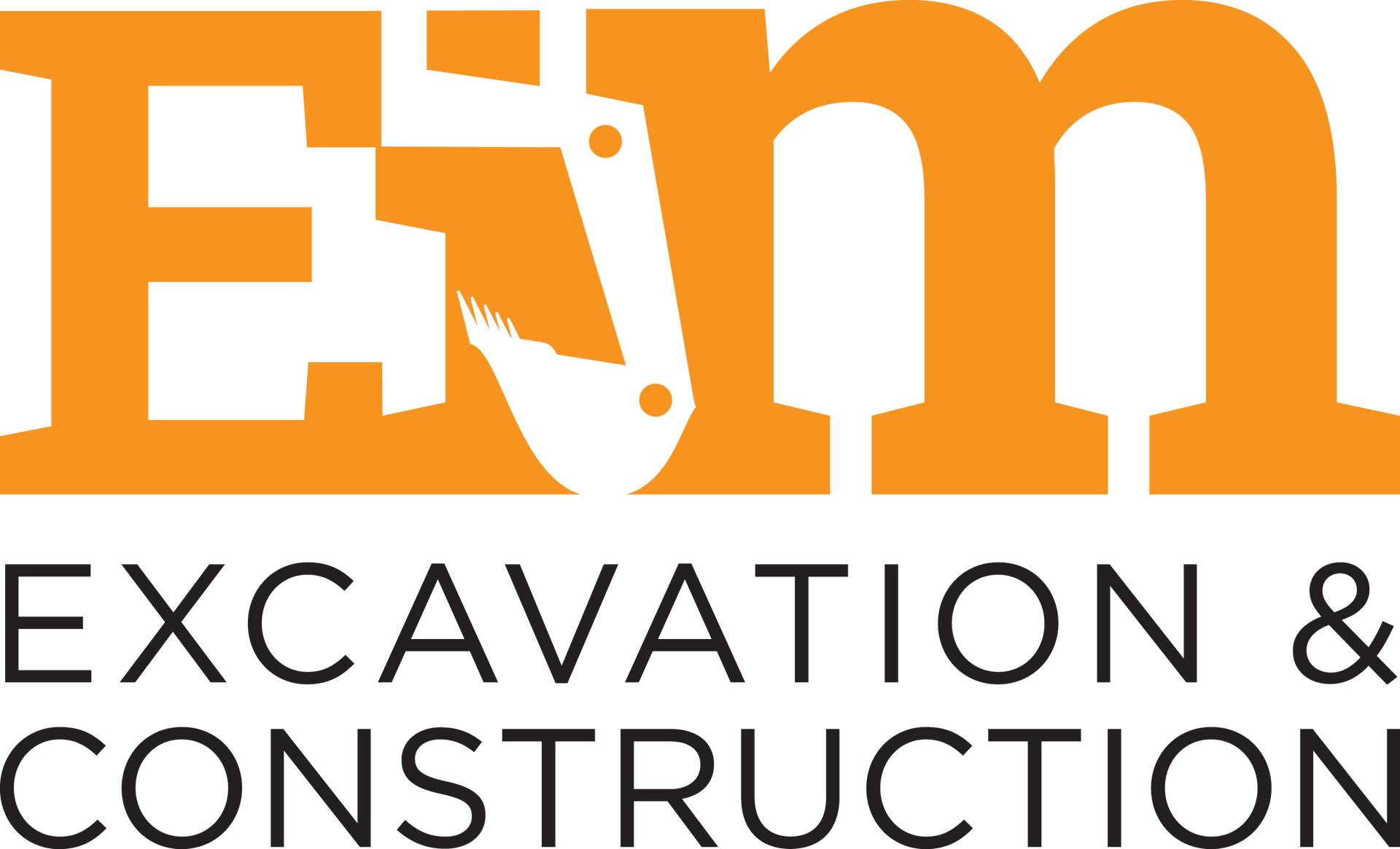How to Choose Local Residential General Contractors
Finding the Right Residential General Contractors Near Me: A Veteran's Guide to Quality Construction
When you're searching for residential general contractors near Austin, the sheer number of options can feel overwhelming. After twenty years in construction and founding Earth in Motion, Inc. here in Austin, Texas, I've seen too many homeowners make costly mistakes by choosing contractors based on price alone. The truth is, your success depends on finding someone who combines proper licensing, solid experience, and clear communication – not just the lowest bid.
I started Earth in Motion back in 2005 as a Service-Disabled Veteran-Owned Small Business because I saw a real need for contractors who actually care about quality work and honest dealing. Whether you're planning a kitchen remodel, adding a custom pond to your backyard, or tackling a whole-house renovation, the contractor you choose will make or break your project.
What Makes a Residential General Contractor Worth Your Trust
A real general contractor does much more than just show up with tools. We're project managers, problem solvers, and your main point of contact throughout the entire build. When I take on a residential project, I'm coordinating electricians, plumbers, and other specialists while making sure everything meets local building codes and stays on schedule.
Here's what sets experienced residential contractors apart from the rest:
- Project oversight: We handle permits, inspections, and code compliance so you don't have to navigate those bureaucratic waters
- Subcontractor management: Good contractors work with trusted teams they've built relationships with over years
- Quality control: We're on-site regularly, checking work and catching problems before they become expensive fixes
- Timeline management: Experienced contractors know how to sequence work and avoid delays that cost you time and money
In my years working from Colorado's challenging mountain conditions to Austin's unique soil and climate issues, I've learned that every project has its own personality. The contractor you hire should have the experience to adapt when unexpected challenges pop up – and they always do.
Why Local Experience Matters for Your Project
When you're looking for residential general contractors near me in Austin or anywhere else, local knowledge is huge. I know Texas building codes inside and out. I understand our soil conditions, weather patterns, and which materials work best in our climate. That knowledge saves you money and headaches down the road.
For example, when I'm building a custom pond here in Central Texas, I know exactly how our clay soil will behave and what drainage solutions work best. That's knowledge you can't get from a contractor who just moved to town or one who's never worked in your specific area.
Essential Questions to Ask Before Hiring Any Contractor
Over the years, I've seen homeowners get burned because they didn't ask the right questions upfront. Here are the must-ask questions that will separate the professionals from the fly-by-night operators:
Licensing and Insurance Verification
First thing you need to know: "Are you properly licensed and insured for this type of work?" Don't just take their word for it. Ask to see the license and insurance certificates. In Texas, general contractors need proper licensing for projects over a certain value, and that license should be current and in good standing.
Insurance is just as critical. Your contractor should carry general liability insurance and workers' compensation. If someone gets hurt on your property and the contractor isn't properly insured, guess who might be on the hook? You.
Experience and References
Ask specific questions about their experience: "How long have you been doing this type of work?" and "Can you show me examples of similar projects you've completed?" Any legitimate contractor should be proud to show off their work and connect you with past clients.
When I meet with potential clients, I always bring photos of recent projects and can provide references from happy customers. If a contractor gets evasive about references or won't show you their work, that's a red flag the size of Texas.
Project Management and Communication
Here's where many contractors fall short: communication. Ask them "How will you keep me updated on progress?" and "What happens if we run into unexpected problems?" You want someone who will return your calls and texts, not disappear for days at a time.
I make it a point to check in with clients regularly, send progress photos, and discuss any issues as soon as they come up. Good communication prevents small problems from becoming big ones.
Understanding How Contractor Pricing Really Works
Let's talk about the elephant in the room: cost. Too many homeowners focus only on the bottom-line number without understanding what drives pricing. That's like buying a car based only on the monthly payment – you might get a surprise down the road.
Factors That Affect Your Project Cost
Several key factors influence what you'll pay for quality construction work:
- Project complexity: A simple bathroom refresh costs less than a full gut renovation that requires moving plumbing and electrical
- Material choices: Premium materials cost more upfront but often save money long-term through durability and lower maintenance
- Site conditions: Difficult access, existing structural issues, or environmental challenges like rocky soil can increase labor costs
- Timeline requirements: Rush jobs typically cost more because of overtime labor and expedited material delivery
- Permit and code requirements: Some projects require extensive permitting and inspections that add time and cost
When I built custom ponds in Colorado, the rocky soil and challenging access drove costs higher than similar projects in Austin's clay soil. The contractor you hire should explain these factors upfront, not surprise you with change orders later.
Why the Lowest Bid Usually Costs More
Here's something I learned early in my construction career: the cheapest contractor rarely delivers the best value. Low-ball bids often mean corners will be cut somewhere – usually on quality, proper permitting, or insurance coverage.
I've seen homeowners hire the low bidder only to discover the contractor wasn't properly licensed, used substandard materials, or disappeared halfway through the project. Fixing those problems always costs more than hiring the right contractor from the start.
Red Flags That Should Make You Walk Away
In my twenty years of construction work, I've seen every scam and shortcut in the book. Here are the warning signs that should send you looking for another contractor:
Licensing and Insurance Red Flags
- Won't provide license or insurance information: Legitimate contractors are proud of their credentials
- Asks for large upfront payments: Reputable contractors typically ask for minimal down payments
- Pushes for immediate decisions: Good contractors understand you need time to make informed choices
- Won't provide written estimates: Everything should be documented in writing
Communication and Professionalism Warning Signs
Pay attention to how contractors communicate with you during the sales process. If they're hard to reach, show up late, or seem disorganized before you hire them, those problems will only get worse once work begins.
I make it a point to return calls promptly, show up on time for appointments, and provide detailed written proposals. That's basic professionalism, not something extra.
The Importance of Proper Project Planning
Good construction projects start with thorough planning, not rushed decisions. When homeowners call me about a project, we spend significant time discussing their goals, timeline, and budget before we ever pick up a tool.
Permits and Code Compliance
One area where inexperienced contractors often stumble is permits and building codes. Skipping permits might save time upfront, but it can create serious problems when you try to sell your home or if there's an insurance claim.
I handle all permit applications and ensure work meets current building codes. It's not the most exciting part of construction, but it protects you legally and ensures your project is done right.
Subcontractor Coordination
Most residential projects require multiple specialists – electricians, plumbers, HVAC technicians, and others. Coordinating these trades efficiently is one of the most valuable services a general contractor provides.
I work with the same trusted subcontractors on most projects because I know their work quality and reliability. That consistency helps projects run smoothly and reduces the chance of problems.
Technology and Modern Construction Management
The construction industry has evolved significantly since I started Earth in Motion. Modern project management tools help us stay organized, communicate better with clients, and deliver projects more efficiently.
I use digital tools to track project progress, manage schedules, and keep clients informed. Photos and updates can be shared instantly, so you always know what's happening with your project.
Specialized Skills for Unique Projects
Every contractor has areas where they excel. For me, custom pond construction has become a real passion. Building water features requires understanding drainage, pumps, filtration systems, and landscape integration – skills that take years to develop.
Whether your project involves complex landscaping, custom outdoor living spaces, or specialized construction challenges, make sure your contractor has relevant experience. Don't be afraid to ask detailed questions about their expertise in your specific project type.
Environmental Considerations
Working in different environments has taught me how local conditions affect construction. Austin's clay soil expands and contracts with moisture changes, which affects foundation work and landscaping. Colorado's freeze-thaw cycles require different approaches to outdoor construction.
Your contractor should understand these local environmental factors and plan accordingly. It's another reason why hiring locally experienced contractors makes sense.
Building Long-Term Relationships
The best contractor relationships don't end when the project is complete. I stay in touch with clients, help with maintenance questions, and often work on additional projects as their needs evolve.
When you find a contractor you trust, that relationship becomes valuable for future projects and referrals. I've built lasting friendships with many clients over the years – that's one of the most rewarding parts of this business.
Your home is likely your biggest investment, and the contractor you choose will have a lasting impact on its value and your satisfaction. Take time to research properly, ask the right questions, and choose based on qualifications and fit, not just price. With careful selection, you'll find that working with the right residential general contractors near me becomes a partnership that serves you well for years to come.
Frequently Asked Questions About Residential General Contractors
How do I know if a residential general contractor is properly licensed and insured?
Always ask to see current license and insurance certificates - don't just take their word for it. In Texas, general contractors need proper licensing for projects over certain values, and that license should be current and in good standing. At Earth in Motion, I'm proud to show my credentials as a licensed contractor and Service-Disabled Veteran-Owned Small Business. Your contractor should carry general liability insurance and workers' compensation coverage. If someone gets hurt on your property and the contractor isn't properly insured, you could be held liable for damages.
What factors determine the cost of my residential construction project?
Several key factors influence pricing for quality construction work: project complexity (a simple refresh costs less than a full renovation requiring moved plumbing and electrical), material choices (premium materials cost more upfront but save money long-term), site conditions (difficult access or challenging soil like Austin's clay or Colorado's rocky terrain), timeline requirements (rush jobs cost more due to overtime labor), and permit requirements (some projects need extensive permitting and inspections). At Earth in Motion, I explain these cost drivers upfront rather than surprising you with change orders later. The cheapest bid usually means corners will be cut on quality, proper permitting, or insurance coverage.
How long should I expect my residential project to take?
Project timelines depend on scope, complexity, weather conditions, and permit approval times. A simple bathroom refresh takes less time than a whole-house renovation or custom outdoor project like the pond installations I specialize in. Local factors matter too - Austin's clay soil and weather patterns affect outdoor construction differently than Colorado's mountain conditions did in my earlier projects. At Earth in Motion, I provide realistic timeline estimates based on twenty years of construction experience and manage the sequencing of different trades to avoid delays. Good contractors understand that proper planning prevents timeline problems, and I keep clients updated with regular progress reports throughout the project.
What should I expect in terms of communication during my project?
Professional contractors should maintain regular communication throughout your project. At Earth in Motion, I make it a point to return calls promptly, send progress photos, and discuss any issues as soon as they come up. You should expect updates on daily progress, advance notice of upcoming work phases, and immediate communication if unexpected problems arise. I use modern project management tools to track progress and share updates instantly, so you always know what's happening with your project. Poor communication during the sales process usually means worse communication during construction, so pay attention to how responsive and organized potential contractors are before you hire them.
Why should I choose a local contractor over someone from outside the area?
Local experience provides invaluable advantages for your project success. After founding Earth in Motion in Austin in 2005, I've developed deep knowledge of Texas building codes, soil conditions, weather patterns, and which materials work best in our climate. This knowledge saves you money and prevents headaches down the road. For example, when building custom ponds in Central Texas, I understand exactly how our clay soil behaves and what drainage solutions work best - knowledge that takes years to develop. Local contractors also have established relationships with trusted subcontractors and suppliers, understand permit processes with local authorities, and remain available for future maintenance or additional projects. That local expertise and accountability make a significant difference in project outcomes.



